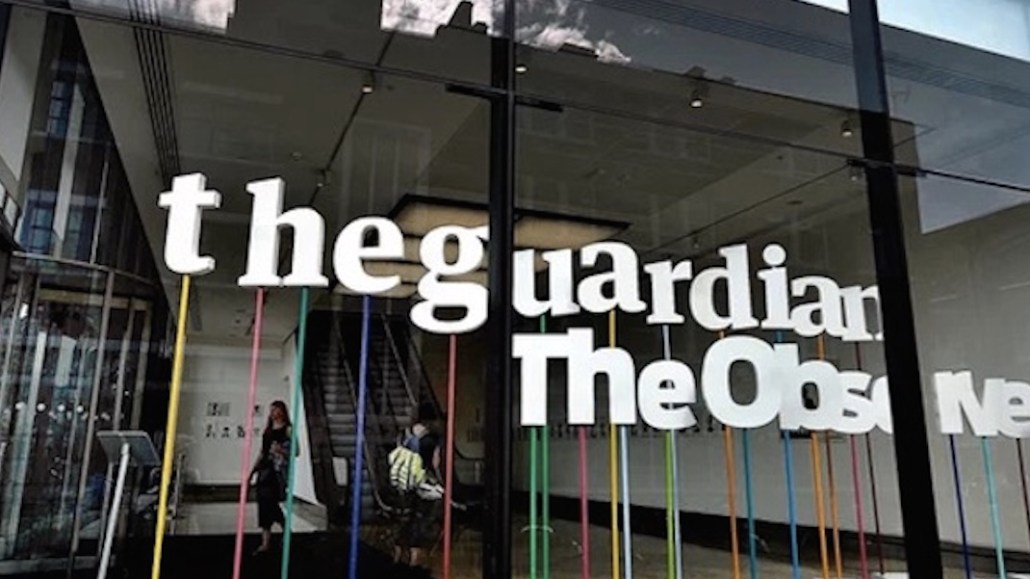Save 50% on a 3-month Digiday+ membership. Ends Dec 5.

The Guardian is pushing harder into philanthropy as it — like other news publishers — struggles to find a profitable model for news online.
The U.K. publisher announced that it’s launched a new nonprofit, at theguardian.org, to raise money from people and foundations to support its journalism. The nonprofit has raised $1 million in grants since it was quietly founded late last year, from groups including the Skoll Foundation to support coverage of climate change, Humanity United to cover slavery and Conrad N. Hilton Foundation to support reporting on early childhood development. That’s part of $6 million the nonprofit has raised in the past year in multiyear commitments.
Rachel White, global evp of philanthropic and strategic partnerships and president of theguardian.org, said the creation of the nonprofit will make it easier to raise money from big foundations and smaller ones that only make contributions to tax-exempt organizations.
The Guardian has an unusual structure in that it’s owned by the nonprofit Scott Trust, whose investments help fund the Guardian’s journalism, but as advertising revenue growth has been challenged, the Guardian has looked to other sources of revenue, such as individual memberships, reader contributions and philanthropy. The Guardian’s philanthropic fundraising arm is a team of four that has doubled in the past year and is looking to add another full-time fundraiser.
White said she couldn’t say if the Guardian was having a harder time attracting advertising to its journalism today when some brands are extremely averse to their ads appearing next to controversial content. But she said having the Scott Trust and funding from like-minded organizations was a way to fund the Guardian’s coverage of issues that are expensive to report on and that don’t easily lend themselves to ad support. Philanthropy remains a small funding source but one that supports core elements of the Guardian’s editorial agenda.
“The impetus is, it’s a natural fit, and why not explore opportunities where there seem to be natural synergies?” she said.
While the ad model has its limitations for journalism, philanthropy has its own challenges. It has raised concerns that the donor’s interests can sway the editorial product.
Ad position: web_incontent_pos1
White said journalism funded by philanthropy would be labeled as such and would be editorially independent of its funding source. However, she also acknowledged that philanthropic giving works on a long timetable in the decision-making process and length of contributions. “You could start a conversation today and be signing a grant agreement nine months from now,” she said. “It’s not instantaneous.”
But she pointed to signs that philanthropic organizations are increasingly interested in supporting journalism.
“It’s exciting for the potential it holds, and if it can serve as a model for the industry that could be replicated, we’d be happy to see that happen, too,” she said. “We’re all struggling with the same challenges.”
More in Media

What publishers are wishing for this holiday season: End AI scraping and determine AI-powered audience value
Publishers want a fair, structured, regulated AI environment and they also want to define what the next decade of audience metrics looks like.

Digiday+ Research Subscription Index 2025: Subscription strategies from Bloomberg, The New York Times, Vox and others
Digiday’s third annual Subscription Index examines and measures publishers’ subscription strategies to identify common approaches and key tactics among Bloomberg, The New York Times, Vox and others.

From lawsuits to lobbying: How publishers are fighting AI
We may be closing out 2025, but publishers aren’t retreating from the battle of AI search — some are escalating it, and they expect the fight to stretch deep into 2026.
Ad position: web_bfu



